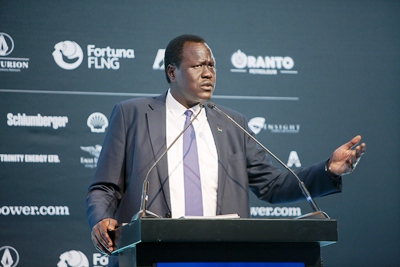S. Sudan optimistic rising oil prices will boost economy
December 4, 2017 (JUBA) – South Sudan said on Monday that it hopes to reap from the global rise in oil prices to uplift an economy weakened by nearly four years of civil war that led to a halt in the nation’s oil production.

According to the Petroleum minister, members of the Organization of Petroleum Exporting Countries (OPEC) as well as non-OPEC states have agreed to continue with the oil control to stabilize the market.
Gatkuoth, however, admitted that oil production declined due to ongoing civil war, but says efforts underway to improve the output.
The main oil firms involved in South Sudan are China National Petroleum Company (CNPC), Malaysia’s oil and gas firm Petronas, and India’s Oil and Natural Gas Corporation (ONGC) Videsh.
Since its independence, South Sudan has relied on oil for all income—a situation that has significantly compounded ongoing political and economic instability due to the fall in crude oil prices.
According to South Sudanese officials, production in the past reached as high as 350,000 bpd but fell after a dispute with Sudan over fees for pumping South Sudan’s crude through Sudan’s export pipeline, which led South Sudan to halt production in 2012.
South Sudan got the lion’s share of the oil when it split from Sudan in 2011, but it’s only export route is through Sudan, giving Khartoum leverage and leading to ongoing pricing disputes.
Even after restarting production, it never recovered to those levels, but it dropped to 245,000 barrels per day after the outbreak of the civil conflict in South Sudan in 2013, which hindered production in the oil-rich areas of the north.
“If you look at the production in Dar Petroleum or DPOC in Paloch, we used to produce 270,000 bpd but now we are producing 135-140,000 bpd. Then if you go to GPOC we used to produce close to 200,000 barrels a day but now we are producing zero,” said Gatkuoth.
“So we have agreed with Sudan to resume the production there,” he added.
The minister further disclosed that the French oil giant Total and Tullow also expressed willingness to invest in South Sudan’s oil blocks.
“Total is coming back for B1, B2 and you have Tullow being committed to making sure that we are going to seal the deal with them. After the oil conference here in Juba a lot of oil companies are interested to come to South Sudan,” he further explained.
War-torn South Sudan depends 98% on oil revenues to fund its budget.
(ST)
